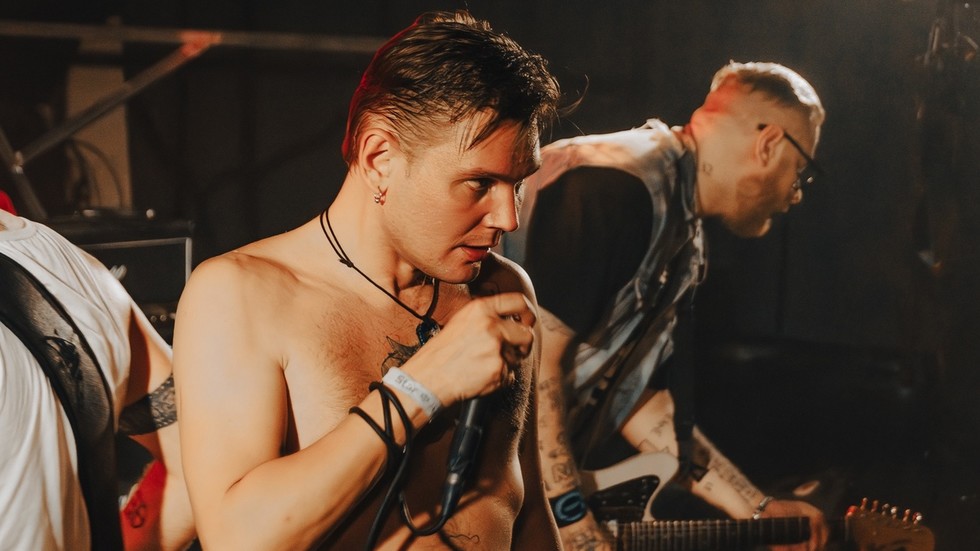**The Controversy Surrounding Russian Rock Star’s Provocative Performance**
The lead singer of the rock band Schenki (Puppies), Maxim Tesli, has found himself at the center of a heated controversy after his recent performance in St. Petersburg. Tesli, whose real name is Maxim Moiseev, was arrested at Pulkovo Airport on charges of petty hooliganism following a performance where he appeared on stage wearing only a sock to cover his private parts.
**The Provocative Performance and Subsequent Outcry**
The arrest of Maxim Tesli comes in the wake of an event termed as an “almost naked party,” organized by popular Russian blogger and TV personality Anastasiya Ivleeva. This event, which took place at an elite club in Moscow, drew the participation of several high-profile Russian celebrities. However, the aftermath of the event saw administrative fines imposed, partnership deals lost, and cancellations of concerts and corporate events for those who were photographed in minimal attire.
Despite not being linked to the “almost naked party,” Maxim Moiseev’s performance at the MOD night club in St. Petersburg has sparked outrage. While he was fully clothed for most of the set, he appeared on stage with only a sock covering his genitals, and the video of the performance made rounds on social media.
**Reactions and Calls for Action**
The videos of the performance quickly drew reactions from various quarters. Ekaterina Mizulina, the head of the Safe Internet League, called for an investigation into Moiseev’s actions, labeling him an “imitator” of Russian rapper Vacio, who had similarly appeared with only a sock at the controversial event. Vacio, whose real name is Nikolay Vasiliev, faced administrative arrest, fines, and even a summons to the military registration and enlistment office.
Vitaly Borodin, the head of the Federal Project for Security and Anti-Corruption, denounced Moiseev’s performance as “LGBT propaganda” and pushed for a criminal case to be initiated against the singer. State Duma Deputy Vitaly Milonov also voiced his concerns, advocating for an investigation into the venue where the performance took place and proposing the establishment of a “children’s dance studio” in its place.
**The Ongoing Debate**
The controversy surrounding Maxim Tesli’s performance has reignited the debate on artistic expression, freedom of speech, and societal boundaries. It has also prompted discussions about the legal and moral implications of such performances within the Russian cultural landscape.
As the fallout from the event continues to unfold, the case of Maxim Moiseev underscores the intersection of art, politics, and social norms – sparking a broader conversation about the rights and responsibilities of public figures, as well as the limits of creative expression.
**Conclusion**
The case of Maxim Tesli’s provocative performance has not only sparked a legal and cultural debate but has also served as a focal point for examining the evolving societal attitudes towards freedom of expression and artistic creativity. As the controversy continues to reverberate, it presents an opportunity for reflection on the delicate balance between individual liberties, cultural sensitivities, and the role of artists in shaping public discourse.


